If you have ever typed “What is a VPN?” or “Do I really need one?” into Google, you are not alone. Every month, thousands of people ask similar questions, and we have been paying attention. Using tools like AnswerThePublic and Google Trends, we gathered the most commonly asked questions about VPNs to help clear up the confusion. Whether you are just starting to learn about online privacy or considering your first VPN subscription, this guide provides clear and simple answers to the internet’s most popular VPN questions.
Will a VPN Slow My Internet?
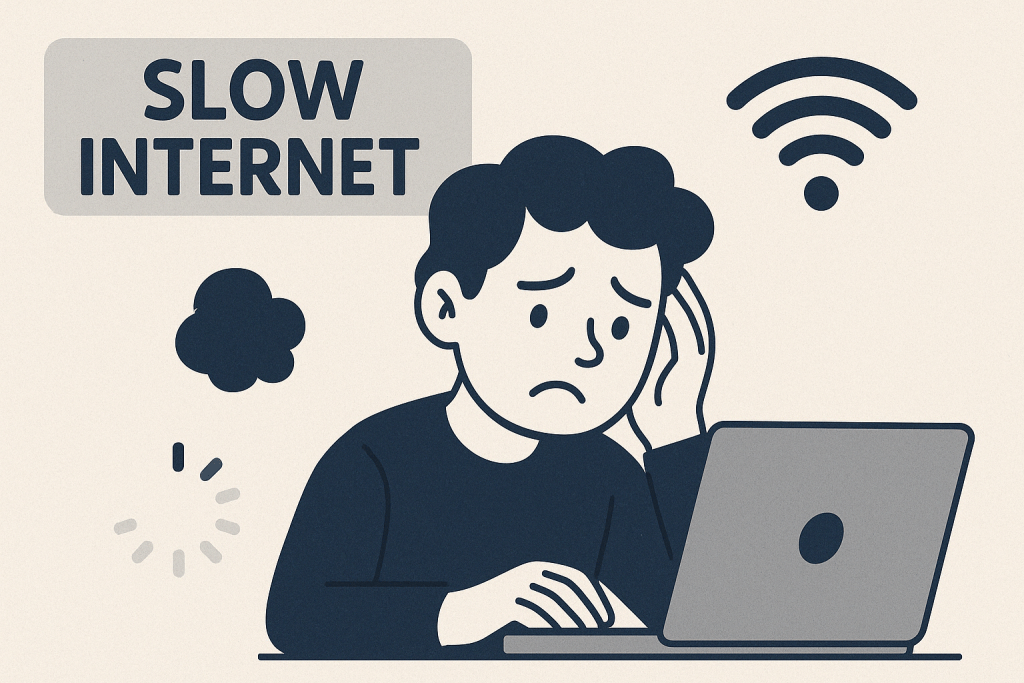
Short answer: Yes, but not always noticeably. Long answer? Well, let’s break it down in plain English.
When you connect to a VPN (Virtual Private Network), your internet traffic gets rerouted through a secure, encrypted tunnel before it reaches the web. This process adds an extra step, which can slightly slow down your connection. But whether you’ll actually notice the slowdown depends on a few factors:
VPN Server Location
If you’re connecting to a server halfway across the globe, data has to travel farther. That naturally increases latency. So if you’re in the U.S. and choose a VPN server in Japan, you might feel a bigger slowdown compared to connecting to a local U.S. server.
Server Load
If lots of people are using the same server at once, it can get congested, which slows everyone down. Think of it like rush hour traffic…more users = more lag.
Your Base Internet Speed
If your internet is already fast (say, 200 Mbps or more), you might not even feel the difference unless the VPN server is really underperforming. But if your connection is on the slower side, say 20 Mbps, even a small drop could be noticeable.
Quality of the VPN Provider
Not all VPNs are built the same. Free or cheap ones often cut corners, use outdated servers, or overcrowded networks. A premium VPN (like NordVPN, ExpressVPN, or Surfshark) is better optimised for speed and will likely have minimal impact.
Encryption Protocol Used
VPNs use different protocols (like OpenVPN, WireGuard, IKEv2). Some are faster than others. WireGuard, for example, is known for being both secure and speedy.
💡 Pro Tip:
If speed is a big concern, look for VPN providers that support split tunneling. This feature allows you to route only specific apps or websites through the VPN while the rest of your traffic goes through your regular connection.
So yes, using a VPN can slow your internet speed, but with the right setup, a good provider, and smart server choices, it’s usually a small trade-off for better privacy and security. Most users find it totally worth it… and often don’t even notice a difference in day-to-day browsing, streaming, or gaming.
Will a VPN Hide My Location?
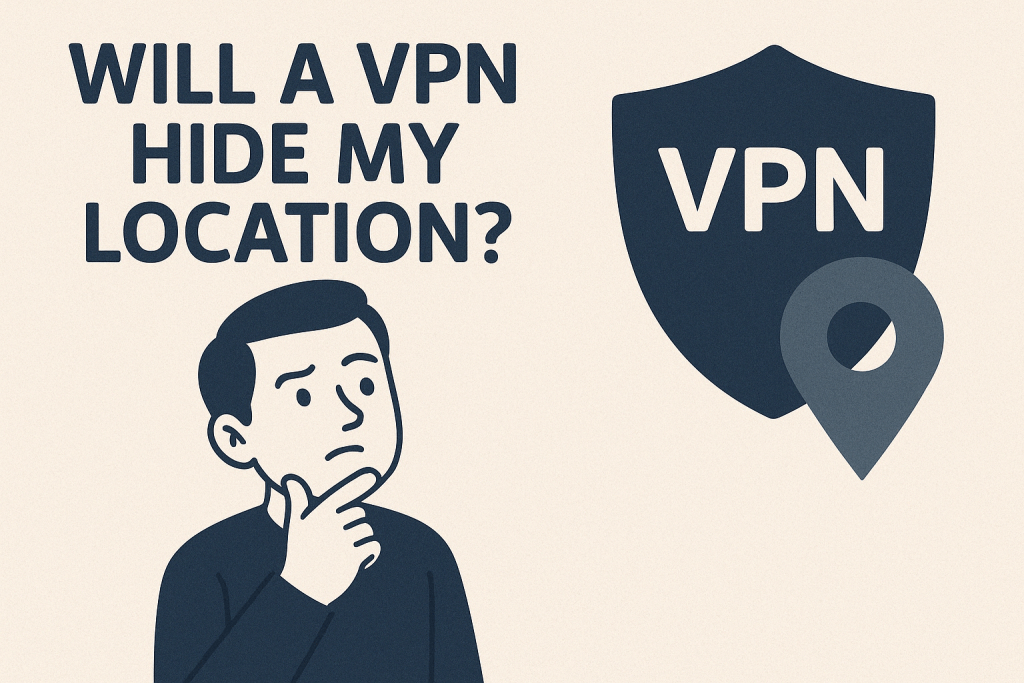
Yes, a VPN will hide your location, but let’s unpack exactly what that means in simple terms.
When you’re browsing the internet without a VPN, websites and online services can see your real IP address. Your IP address is basically your digital home address, it shows your general location, like your city or region. It’s not super precise like a GPS, but it’s accurate enough to pinpoint your location on a map.
Now, when you connect to a VPN, it masks your real IP address and replaces it with one from the VPN server you chose. If you connect to a server in New York, websites will think you’re in New York. Connect to one in Paris? Voilà, now you’re virtually in France.
Here’s How a VPN Hides Your Location:
- Replaces Your IP Address: Your original IP is hidden, and websites only see the VPN server’s IP.
- Encrypts Your Traffic: Your online activity is scrambled so third parties can’t see what you’re doing or where you’re coming from.
- Bypasses Geo-Restrictions: Because it looks like you’re browsing from another country, you can access content that’s normally blocked in your region.
What a VPN Doesn’t Do:
- It won’t hide your GPS location: Apps that use GPS (like Google Maps or Uber) rely on physical signals from your device, not your IP address. So unless you’re using something like a GPS spoofing app, your GPS location can still be detected.
- Doesn’t make you invisible: If you’re logged into Google or Facebook, those platforms can still track you based on your account activity, cookies, and other identifiers — even if your IP says you’re in a different country
So yes, a VPN hides your IP-based location and makes it appear as if you’re somewhere else. It’s one of the most effective tools for protecting your privacy, avoiding location tracking, and accessing region-locked content. Just remember, it hides your digital footprint, not your entire identity.
Will a VPN Stop Hackers?
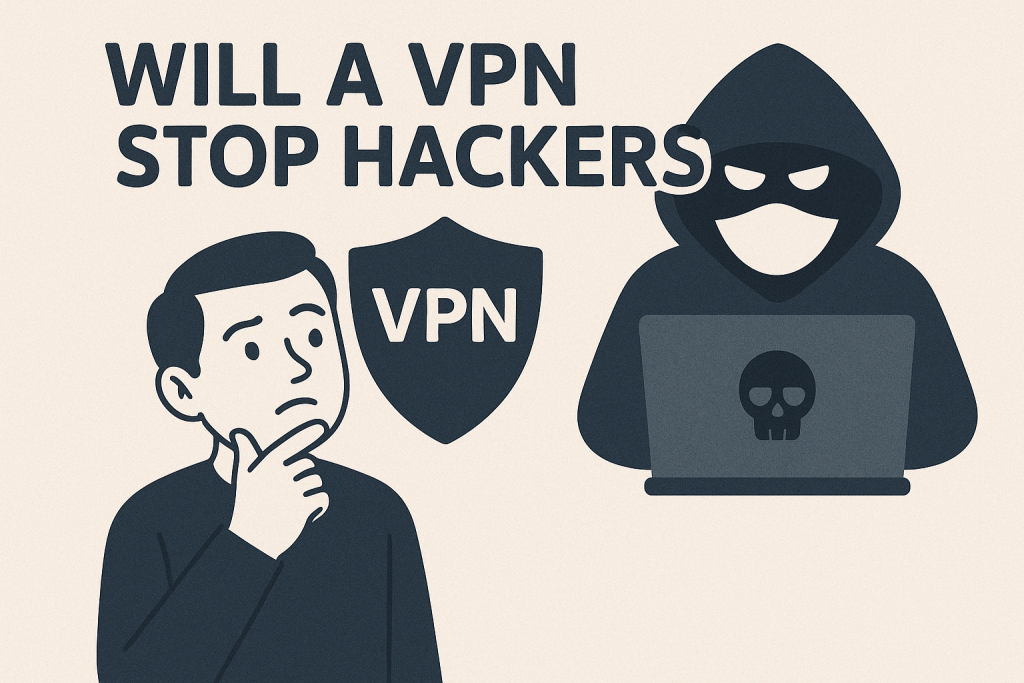
A VPN is a solid line of defence, but it’s not a superhero cape that makes you 100% hack-proof. Think of it as locking your front door and installing security cameras, it makes it way harder for someone to break in, but it doesn’t make you invincible.
What a VPN Does to Protect You:
- Encrypts Your Data: VPNs create a secure, encrypted tunnel between your device and the internet. That means even if a hacker tries to snoop on your connection, especially on public Wi-Fi, all they’ll see is scrambled code.
- Hides Your IP Address: Your real IP address is like your digital fingerprint. A VPN replaces it with one from its server, making it harder for hackers to trace your physical location or attack your device directly.
- Blocks Man-in-the-Middle Attacks: These are attacks where hackers intercept your communication with a website or app. VPN encryption makes these much harder to pull off.
But Here’s What a VPN Can’t Do:
- Stop Malware: A VPN won’t protect you from downloading viruses, ransomware, or spyware. If you click a shady link or install sketchy software, a VPN can’t save you.
- Protect from Phishing Scams: If you fall for a fake email or website and hand over your login info, a VPN won’t stop that. That’s more about user awareness and using tools like email filters or anti-phishing extensions.
- Secure Your Device: If your phone or computer is already infected or compromised, a VPN can’t fix that. You still need good antivirus software and regular updates.
Using a VPN is one of the smartest things you can do to protect your personal info, especially on sketchy public Wi-Fi at coffee shops, airports, or hotels. But don’t rely on it as your only defence. Combine it with strong passwords, two-factor authentication, antivirus software, and smart browsing habits.
Why Does My VPN Keep Disconnecting?
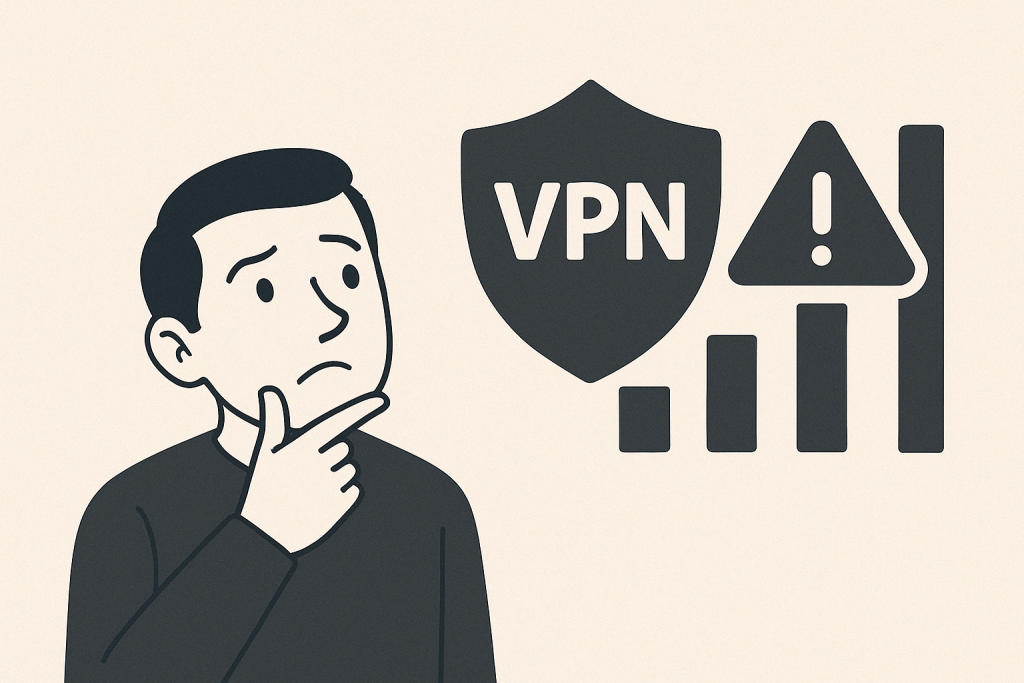
If your VPN keeps disconnecting, it can be super frustrating. One minute you’re streaming, browsing, or gaming securely, and the next… bam, back to your regular (and unprotected) connection. So what’s going on? Let’s break it down.
Common Reasons Why a VPN Disconnects:
- Weak or Unstable Internet Connection
If your Wi-Fi or mobile data drops for even a second, your VPN might disconnect too. VPNs need a consistent connection to stay active. A shaky internet connection can easily cause your VPN to lose sync. - Overloaded VPN Server
When too many people use the same server, it can get overwhelmed and cause connection drops. Try switching to a less crowded server… your VPN app usually shows the load percentage or ping time. - Firewall or Antivirus Interference
Sometimes your own security software sees the VPN as a “threat” and blocks it. This is especially common with free antivirus programs. You may need to whitelist your VPN app or adjust firewall settings. - Poor VPN Configuration
Wrong settings, like incorrect VPN protocols or ports can cause instability. Most VPNs offer different protocol options like OpenVPN, WireGuard, IKEv2, etc. Try switching protocols and see what works best for your network. - ISP Throttling or Blocking
Some internet service providers detect VPN traffic and intentionally slow it down or block it. If your ISP is anti-VPN, switching protocols or using “obfuscated servers” (offered by some VPNs) can help bypass that. - Battery Optimisation (Mobile Devices)
On smartphones, especially Android, battery-saving settings may shut down background apps, including your VPN. Disabling battery optimisation for your VPN app can help. - Outdated App or Software
If you’re running an old version of your VPN app, it may have bugs that cause disconnections. Always keep your VPN software up to date to ensure stability and compatibility.
VPNs disconnecting isn’t uncommon, but with a few tweaks, you can usually fix it. If it keeps happening despite your best efforts, it might be time to consider switching to a more reliable VPN provider.
Are VPNs Legal?
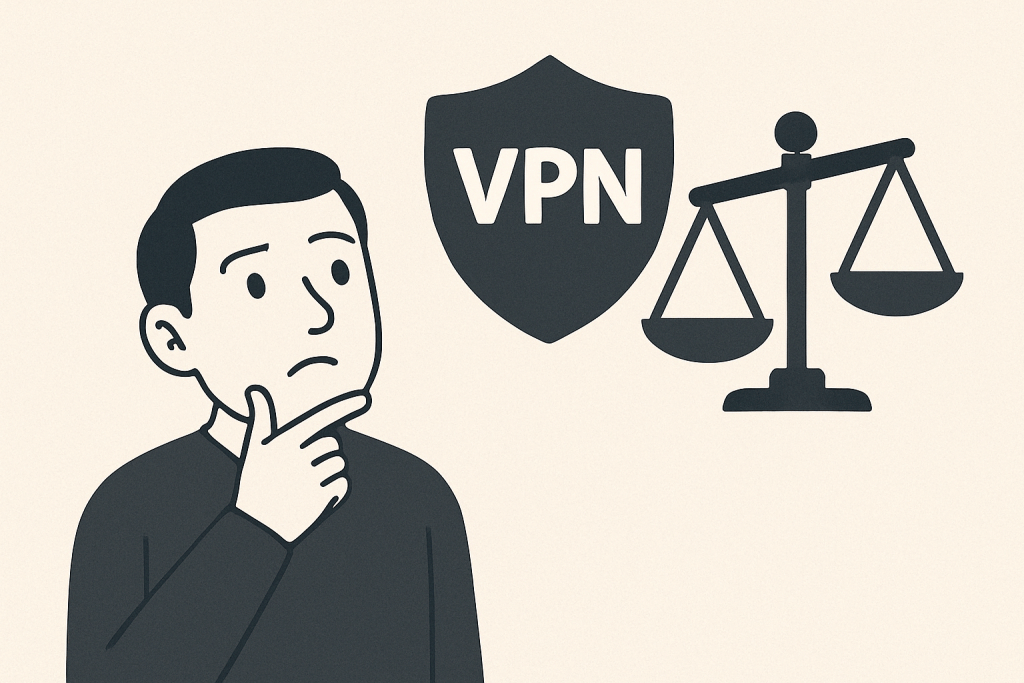
Yes, in most countries, VPNs are totally legal to use. But there’s a catch and it all depends on where you are and how you’re using it.
Where VPNs Are Legal:
In countries like the United States, Canada, the United Kingdom, Australia, and most of Europe, using a VPN is 100% legal. People use them every day for work, privacy, and security and many companies even require employees to use VPNs for remote access.
So if you’re just trying to stay safe on public Wi-Fi, protect your data, or stream geo-blocked content, you’re good to go.
Countries Where VPN Use is Restricted or Banned:
Some governments don’t like people hiding their online activity, especially in places with strict internet censorship. In these countries, VPN use is either limited or completely banned:
- China: Only government-approved VPNs are legal. Most commercial VPNs are blocked.
- Russia: VPNs are allowed, but they must comply with state censorship rules — which defeats the purpose.
- Iran: VPNs are technically legal, but only if they’re registered with the government.
- North Korea & Turkmenistan: Total bans. Internet access itself is heavily controlled.
- UAE and Oman: Using a VPN to commit a crime (like VoIP calling) is punishable, even though VPNs themselves are not outright banned.
Using a VPN Legally:
Even in countries where VPNs are legal, what you do with it matters. A VPN doesn’t give you a free pass to break the law. For example:
- Downloading pirated content? Still illegal.
- Hacking or engaging in cybercrime? Definitely illegal.
- Using it to avoid local censorship or surveillance? Depends on the country.
Bottom Line:
In most parts of the world, VPNs are completely legal and often encouraged for online privacy. But always check the laws in your country, especially if you’re traveling. And remember, a VPN is a privacy tool, not a get-out-of-jail-free card.
Which VPN Works with Netflix?
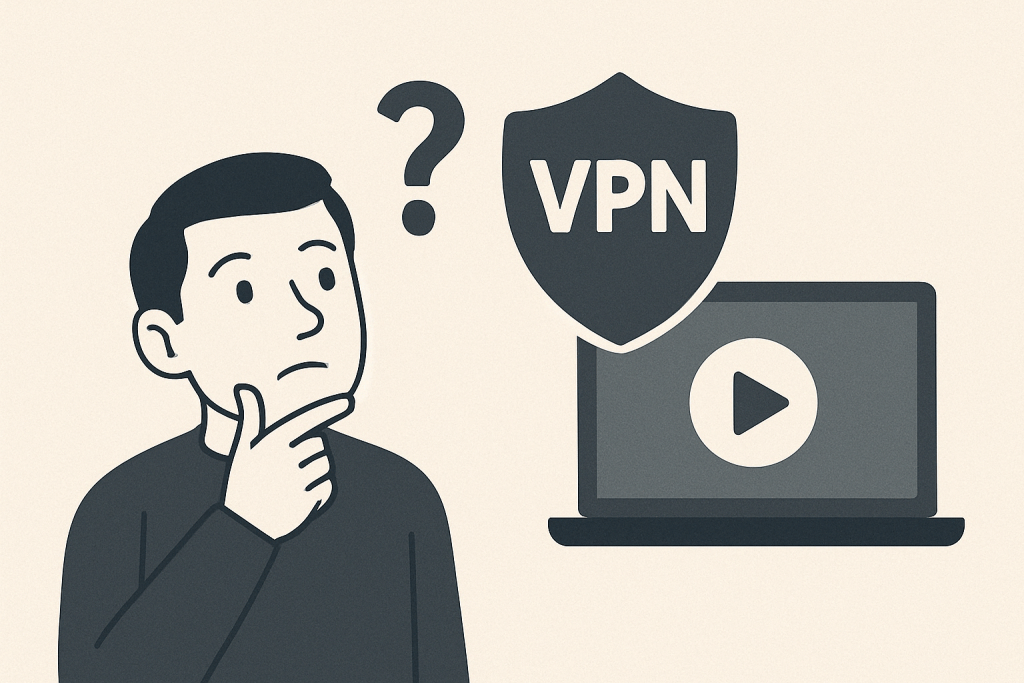
If you’ve ever tried watching Netflix with a VPN, you know the struggle…you find a VPN, connect to a server in another country, hit play, and… boom. “You seem to be using an unblocker or proxy.” Yeah, super annoying.
The truth is, Netflix is really good at blocking VPNs, but some VPNs still manage to stay one step ahead
ExpressVPN
- Works with: US, UK, Canada, Japan, and more
- Why it’s good: Fast speeds, reliable connections, and it constantly refreshes IP addresses to bypass Netflix’s blocks
- Bonus: 24/7 customer support that will literally tell you which server to use for Netflix
NordVPN
- Works with: Most major Netflix libraries, including the US, UK, Netherlands, Japan, and Germany
- Why it’s good: Known for speed and stability. It has a “SmartPlay” feature that automatically switches to streaming-friendly settings
- Extra tip: Their support chat is great for asking which servers work right now
Surfshark
- Works with: US, UK, Australia, India, and others
- Why it’s good: Budget-friendly and supports unlimited devices. Great for families or households with multiple streamers
- Streaming edge: Often flies under Netflix’s radar thanks to newer, less-used servers
CyberGhost
- Works with: Netflix US and several other regions
- Why it’s good: Offers dedicated streaming servers labeled for Netflix, so you know exactly which one to pick
- Drawback: Sometimes not as reliable for less popular Netflix libraries
PrivateVPN
- Works with: US, UK, and a few other Netflix regions
- Why it’s good: Smaller provider, so it tends to avoid Netflix’s VPN blacklist
- Not as fast, but gets the job done if you’re patient
Things to Remember:
- Not every server works: Even with a good VPN, you may need to try a few servers to find one that slips past Netflix’s radar.
- Clear your cache and cookies: Netflix may store old data that links you to your real location.
- Use desktop apps: VPNs tend to work better with Netflix on browsers or PC/Mac apps than on mobile or smart TVs.
If streaming international Netflix content is your main goal, go with a premium VPN known for bypassing geo-restrictions. ExpressVPN, NordVPN, and Surfshark are the most reliable options right now. They’re fast, secure, and they know how to stay one step ahead of Netflix’s VPN crackdown.
Which VPN Is Free?
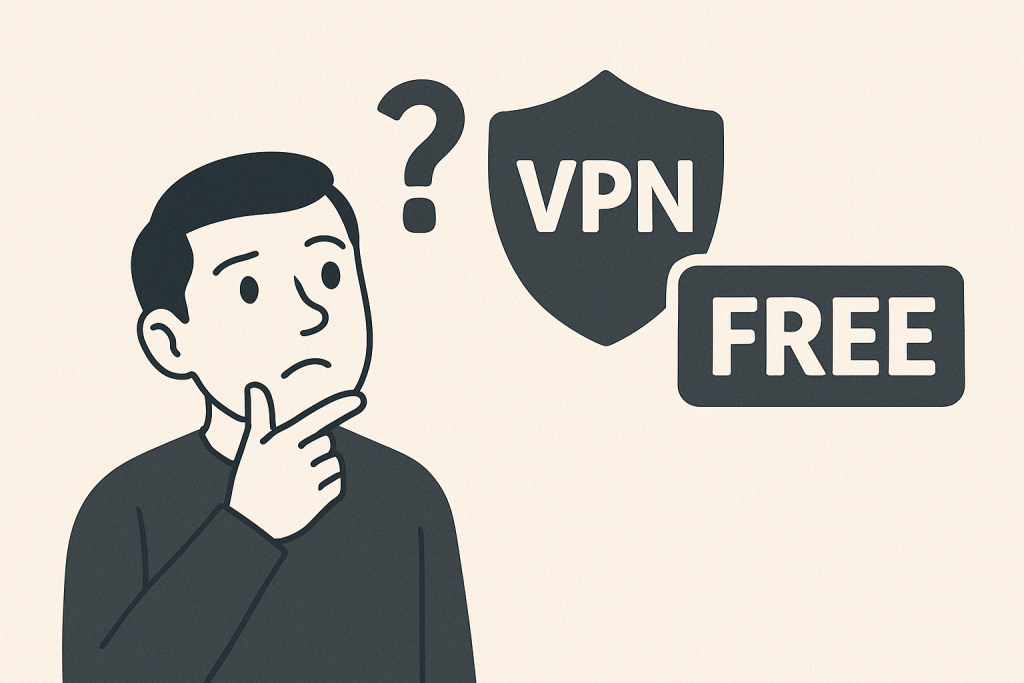
Yes, there are free VPNs out there, but let’s be real… you usually get what you pay for. Still, if you’re just looking for basic protection or to test the waters before committing to a paid plan, here are some legit free VPN options that won’t sell your data or completely wreck your internet speed.
Top Free VPNs Worth Trying
- Proton VPN (Free Plan)
- Why it’s good: No data limits, no ads, and strong encryption
- Limitations: Fewer server locations (only 3 countries), and free users get lower speeds during peak times
- Best for: Privacy-focused users who don’t need to stream or download a ton
- Windscribe (Free Plan)
- Why it’s good: You get 10GB of data per month, solid speed, and access to servers in 10+ countries
- Limitations: Limited data cap, which can run out fast with streaming
- Best for: Light browsing, occasional Netflix use, or public Wi-Fi protection
- TunnelBear (Free Plan)
- Why it’s good: Super easy to use, with fun visuals and strong security
- Limitations: Only 500MB of data per month- which is barely enough for an hour of video
- Best for: VPN beginners or people who want a simple tool to secure public Wi-Fi
- Hide.me (Free Plan)
- Why it’s good: No ads, solid privacy policies, and 10GB monthly data
- Limitations: Limited server access and not ideal for streaming
- Best for: Casual browsing and added security on public networks
Some free VPNs come with serious red flags… think slow speeds, tons of ads, and worst of all, selling your data to third parties. Stay far away from unknown or sketchy apps on app stores that promise “unlimited free VPN.” Most of the time, if it sounds too good to be true, it is.
Free VPNs are okay for light use, but if you want something reliable for streaming, gaming, torrenting, or total online privacy, a paid VPN is a better investment.
Which VPN is best for the UK?
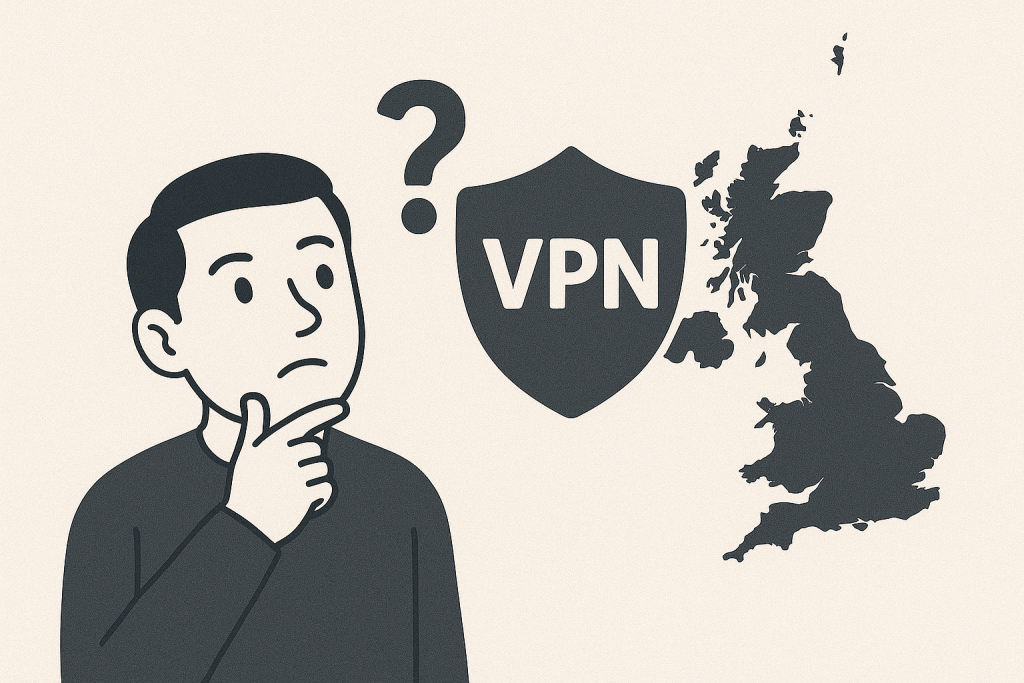
Here are the top VPNs recommended for users in the UK, based on recent expert reviews and user feedback:
1. NordVPN
- Why it’s recommended: NordVPN is renowned for its fast speeds, robust security features, and extensive server network, including over 400 servers in the UK. It effectively unblocks streaming services like BBC iPlayer and Netflix. Source
2. ExpressVPN
- Why it’s recommended: ExpressVPN offers high-speed connections and strong encryption, making it ideal for streaming and gaming. It has servers in 105 countries, including the UK.
3. Surfshark
- Why it’s recommended: Surfshark is a budget-friendly VPN that allows unlimited device connections, making it great for families or multiple devices. It effectively unblocks UK streaming services.
4. Proton VPN
- Why it’s recommended: Proton VPN is known for its strong privacy policies and being based in Switzerland, a country with strict privacy laws. It offers a free version with no data limits.
5. CyberGhost
- Why it’s recommended: CyberGhost offers user-friendly apps and dedicated servers optimized for streaming, including UK services like BBC iPlayer.
When choosing a VPN in the UK, consider your specific needs, such as streaming, privacy, or multiple device usage. NordVPN and ExpressVPN are excellent for speed and security, Surfshark offers great value for families, Proton VPN is ideal for privacy enthusiasts, and CyberGhost is user-friendly with dedicated streaming servers.